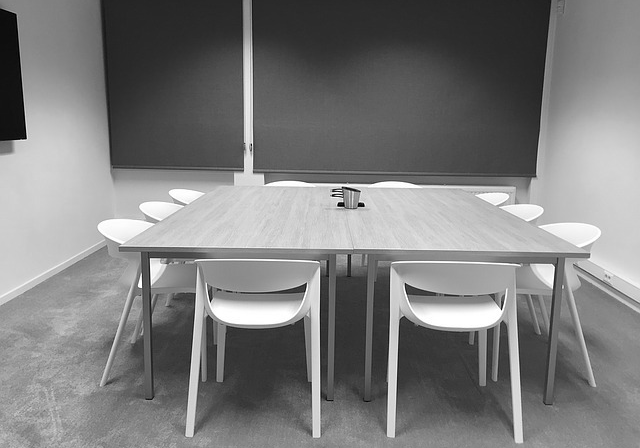In my last blog post, I asked the question: What is the point of your team meetings?
In other words, why have them at all? If you are unsold on the idea of the much-maligned team meeting being a useful tool for lawyers, I recommend reading that blog first. It also explores some of the ways in which you can diagnose the problems with your meetings, which is an important first step.
The rest of the blogs in this mini-series will look at improving your team meetings – how to get them whipped into shape and fit for purpose!
Here are the next blogs in the mini-series:
- Planning and preparing the meeting ⇐ (You Are Here!)
- Executing the meeting and following-up
- Dealing with difficult behaviours in meetings
Planning your team meetings
‘Failing to plan is planning to fail’, and this old proverb holds true for meetings in particular. Planning is the first key step to an effective meeting. Without thoughtful planning, the meeting can quickly collapse into a directionless waste of time.
Preliminary questions
You should start by asking yourself 4 significant questions:
- Why do I want/need this meeting? This is similar to the question I discussed in the first blog but should be narrowed down to focus on this specific meeting. Every meeting should have a point, so if you cannot answer this question convincingly it is probably better for everyone if the meeting does not take place at all.
- What do I want to get out of the team meeting? This will help you to focus on the intended outcomes of the meeting – the objectives that you hope the meeting will achieve.
- What might your team want to get out of the meeting? Following on from Question 2, you should also bear in mind that other attendees may have their own objectives. These should be accommodated, as far as is possible, so that the meeting can be effective for the team as a whole.
- What is the value vs. cost ratio of the meeting? After answering all of the previous questions, you may want to consider whether the purpose of the meeting – with its potential goals and outcomes – will be worth the time, trouble and expense of having it. If not, or you are uncertain, consider if there are any other ways in which you could achieve the same objectives without having the meeting.
These preliminary questions should give the meeting a pre-emptive focus and ‘weed out’ the meetings which are most likely to be pointless.
Planning the details
With your answers to the preliminary questions in mind, the next stage of planning is to sort out the details. For example, you might wish to make the meeting formal or informal. Both of these options have their own strengths and weaknesses; for instance, an informal meeting allows people to relax and open up a bit more, but also risks a loss of focus.
Also consider what form the meeting will take. Will you or another be doing a presentation? Is there going to be a discussion and will action points be agreed in relation to the presentation? Could you generate interest and excitement by having a quiz with prizes on the contents of the presentation?
Following on from this, you will also need to determine what resources you will require to conduct the meeting, e.g. a laptop and projector, handouts, a whiteboard, or a particular shape of table.
Naturally, you must also consider who should attend the meeting. This will be informed by your intended outcomes, and you might also reflect on questions such as:
- Do you need support staff to be present?
- Do you need another team to come in and brief yours, such as marketing or IT?
- Do you need a facilitator? This is someone outside of the team who can ease the meeting along and might raise questions and key points. It can be extremely useful to have someone with you at a meeting who is not a member of your team. They can give you a second perspective or assess the reactions of your team to certain topics.
Making an agenda
An agenda can help to keep a meeting focused towards its intended objectives. Even without a formal agenda (i.e. one which is distributed to attendees prior to the meeting), if you are conducting the meeting, you should still have an outline of the meeting’s structure to keep yourself on track.
When preparing a formal agenda, there are a number of details to think about:
- The order of the items. Are there reasons for putting one item before another? A logical order will assist with the flow of the meeting.
- Allocating time to each item. Doing so can avoid a meeting becoming bogged down.
- Circulating and adapting the agenda before the meeting. This will allow attendees to comment on the agenda and/or suggest changes, helping them to become more involved and to meet their own objectives for the meeting.
- ‘Classic’ inclusions. A statement of purpose at the start of the meeting can focus the attendees from the outset. Similarly, it is always good practice to include an entry for ‘any other business’ in the agenda.
Other considerations
A number of other factors can affect how a meeting works out. It might surprise you how much influence these subtle details can have. Planning out the optimum situation available to you can give the meeting its greatest chance of success.
- The timing of the meeting. This is not just a question of how long the meeting should be, but when it should take place. Remember that meetings after lunch can suffer from post-lunch drowsiness! Another aspect of timing is to allow a period for discussion and questions at the end. If you don’t need or use this, then your meeting will finish early (which is always welcome to attendees!), and it will also ensure your team does not feel like they were rushed in the meeting.
- The location of the meeting. It will be impractical to hold your meeting in some locations. The form and details of your prospective meeting will often dictate certain requirements. However, you should also consider the environment of your intended location. Will there be excessive noise or interruptions? Will everyone be able to sit appropriately and join in? Choose your place carefully; an unsuitable location can have disastrous consequences to a meeting.

Preparing for your meeting
‘To fail to prepare is to prepare to… – ‘ you get the idea!
When preparing for your meeting, the most important part is preparing yourself. You might have planned everything down to the last detail, but if you are unprepared to conduct the meeting it can still fall to pieces. Here are the main aspects to focus on when preparing yourself:
- Be as familiar as you can with the information to be covered. Also keep in mind the purpose of the meeting so you can keep it fixed on the objective.
- Consider the other attendees at the meeting:
-
- What will they want to achieve at the meeting?
- Are they likely to have objections or concerns? Will these be the same as last time? If so, you can take an update from them on the situation.
- What are their main objections or questions likely to be? You don’t have to have all the answers. You could ask the team for their ideas on how to deal with them.
- How do they normally act at meetings? Are they open and forthcoming? Quiet? Argumentative? Receptive? Do they like facts and figures, and being asked for their opinions? Are there any comedians or raconteurs in the team whom you can call upon to lighten the mood where required?
- What do they think about you, your objectives and the organisation as a whole?
- Could any of them have hidden agendas or could there be any personality clashes or are you having to address team politics? These things can have a dramatic effect on a meeting – sometimes literally! I will be examining how to deal with these challenges in my blog post on difficult behaviours and team politics in meetings.
 Preparation will also involve getting the other attendees ready to participate in the meeting. This means making sure everyone is supplied with the crucial details (date, time and location) and any other information they need in advance, such as the agenda.
Preparation will also involve getting the other attendees ready to participate in the meeting. This means making sure everyone is supplied with the crucial details (date, time and location) and any other information they need in advance, such as the agenda.
When doing so, you may be able to assess the team’s morale, their views on the meeting, and their position on what you have to say. This may help you when preparing yourself in relation to the other attendees’ objectives, intentions, and likely conduct. The effectiveness of many meetings is pre-determined by the work that goes into preparing the ground beforehand.
In my next blog, I will be looking at the nitty-gritty of meetings themselves from how to conduct one effectively how to harness the full power of a meeting by following up appropriately.
If having effective meetings is something that you are struggling with at the moment – losing time, money and energy in meetings which achieve nothing – then coaching may be the answer for you. Or would your team benefit from a 2-hour lunchtime workshop at your office on Effective Team Meetings, or Team building or Self-confidence at Work? Telephone me for a friendly, no-pressure chat on 07921540039 to discuss further.
YCFL delivers strategic coaching, leadership, management and interpersonal skills training for the legal profession. Since 2003 Ann has trained nearly 7000 lawyers in leadership, management, business and interpersonal skills. She has also trained with the Coaching Academy and holds a H.N.L.P. certificate in coaching as well as being an N.L.P. Master Practitioner. She is a member of the Professional Speaking Association and Professional Speakers Academy.

3 replies to "Make Your Team Meetings Work for You: Planning and Preparing"
[…] Planning and preparing the meeting […]
[…] Planning and preparing the meeting […]
[…] the team-building benefits of regular, properly conducted team meetings. My series of blog posts on making team meetings work for you aims to address all the challenges that can be experienced in these […]